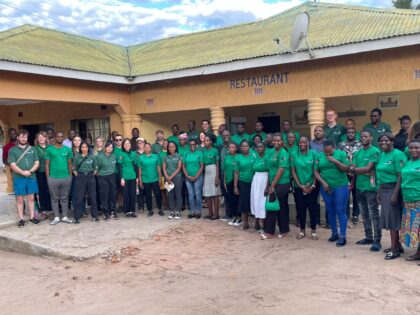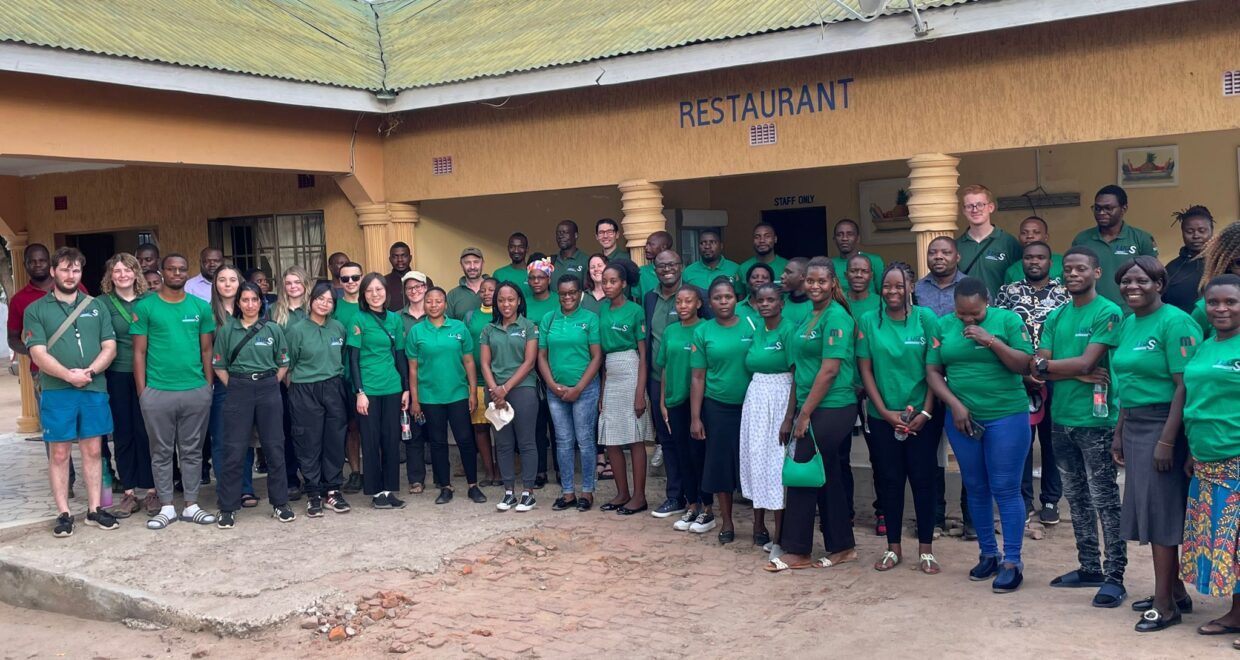Meet the Editors: Q&A with Angus O’Ferrall, Social Media Editor for Parasitology
Welcome to our “Meet the Editors” series, where we interview the editorial team about their work and their relationship to the journal. In this post we meet Angus O’Ferrall, Social Media Editor for Parasitology.
What is your current job title both within Parasitology and outside the journal? Where are you based in the world?
I am one of the Social Media Editors at Parasitology, a role that predominantly involves keeping our online followers up to date with new content and opportunities at the journal. I also help to put together blog posts with authors, such as for our Paper of the Month blog. Away from Parasitology, I am a medical doctor and currently a full-time PhD researcher at the Liverpool School of Tropical Medicine (LSTM) in the UK.

In a few sentences, please describe the focus of your work. Which parasites do you study? What is the goal of your research? What approaches do you use in your work?
I am particularly interested in infectious disease epidemiology and control on underserved populations. Within my PhD studies, I am focused on linking the One Health surveillance of schistosomiasis and antimicrobial resistance (AMR), both of which can be transmitted in freshwater environments where Water, Sanitation, and Hygiene (WASH) infrastructure is inadequate. The study I am working on is based in two rural districts of southern Malawi, where we aim to strengthen arguments for improved sanitation that can reduce the transmission of various pathogenic bacteria and parasites.
When did you first become interested in parasitology as a field? Did a particular teacher or mentor direct your career path?
My interest in parasitic diseases really took shape during my MSc in Biology and Control of Parasites and Disease Vectors at LSTM in 2018–2019. Since then, I’ve had the chance to work with and learn from a number of people whose perspectives have helped shape my thinking, including Professor Russell Stothard (the Parasitology Editor-in-Chief, who supervised my MSc project and is now my PhD co-supervisor), Professor Adam Roberts (my primary PhD supervisor, who inspired me to think about AMR not only as an issue when treating patients in the clinical setting, but as a broader planetary health issue), and Dr James LaCourse (who has played a big role in guiding students at LSTM into tropical medicine research, myself included).

How did you first become familiar with Parasitology?
I think it must have been when I was an MSc student, writing my first literature review on schistosomiasis. Parasitology has been home to many important articles in the field over the years!
What motivated you to become a social media editor at Parasitology?
Working with Parasitology as a social media editor was a chance to step out of my comfort zone, not only because it can be challenging to communicate science to a non-specialist audience, but also because the field of parasitology is so varied, and I know very little about many of the parasites that researchers write about in the journal. It has been a great way to learn about the ideas and perspectives of researchers across the whole of parasitology, and to bring this interesting topic to our online community.
What is the best part of working with Parasitology?
I particularly enjoy working with the editorial team. There is a lot to learn from each of the editors, both scientifically and in terms of career advice.
What advice would you give to those new to social media? How can they successfully interact with social media to broaden their scientific outreach?
Start by following researchers and organisations that inspire you. Social media is a great way to keep up with new developments and engage with the broader scientific community. Many scientists are open to conversations and collaborations online, and these connections often happen quite naturally. It’s also a space where you can share your own work and perspectives in creative, accessible ways.
What advice would you give to early career researchers who are just starting out in parasitology as a field?
Parasitology is a relatively close-knit community compared to some other disciplines, which makes it easier to connect with leaders and peers at conferences and workshops. Take advantage of those opportunities! Aside from that, be curious and open-minded, as following your interests often leads you down the most rewarding paths. Enjoy the process of discovery, and don’t be afraid to ask questions or reach out to others in the field.






